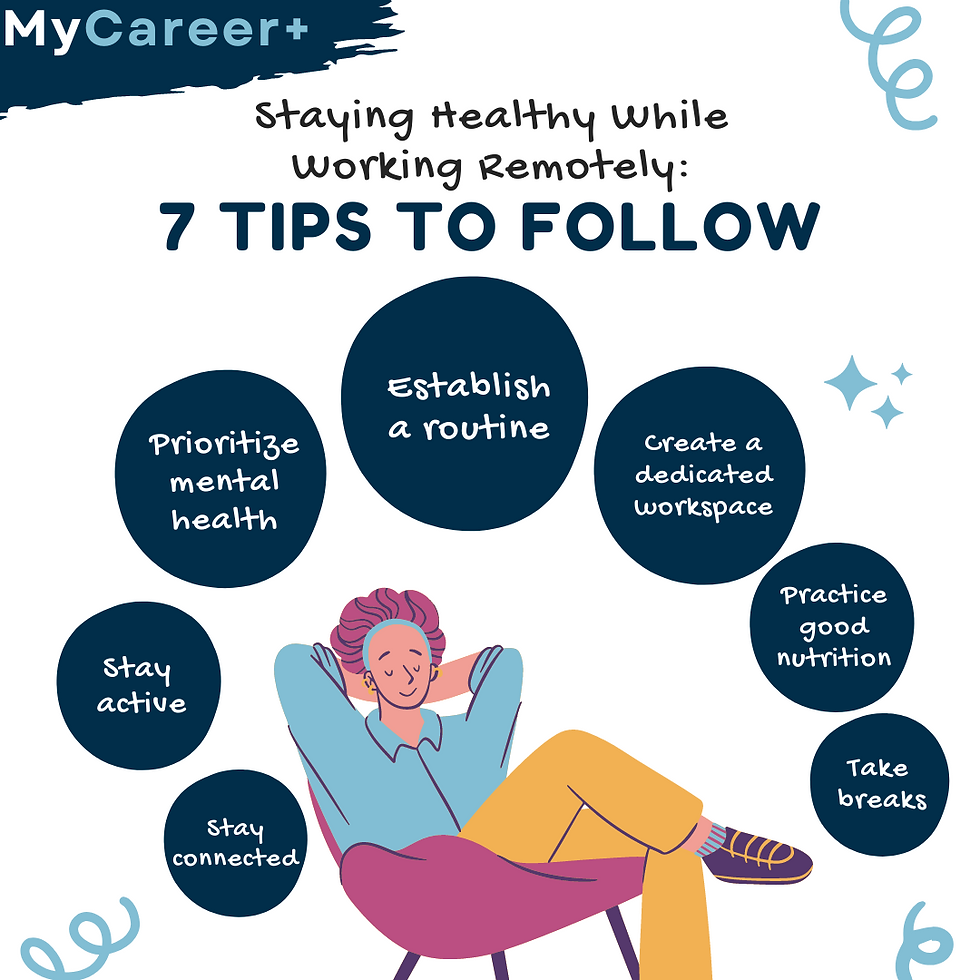Importance of Work-Life Balance: Achieving Greater Satisfaction in Your Personal and Professional
- MyCareer +
- Feb 23, 2023
- 2 min read

As modern professionals, we often find ourselves striving to achieve career success, financial stability, and a fulfilling personal life. However, this pursuit can often lead to imbalances in our work and personal lives, leaving us feeling overwhelmed, stressed, and dissatisfied. In this article, we will discuss the importance of work-life balance and provide practical tips to help you achieve greater satisfaction in both your personal and professional life.
Importance of Work-Life Balance
Maintaining a healthy work-life balance is crucial for our physical, emotional, and mental well-being. Studies have shown that individuals who experience work-life conflict are at higher risk of experiencing stress-related health problems, including anxiety, depression, and heart disease. On the other hand, individuals who have achieved work-life balance report higher levels of job satisfaction, increased productivity, and greater overall life satisfaction.
Furthermore, achieving work-life balance is not only beneficial to the individual but also to the organization. Companies that promote work-life balance are more likely to attract and retain top talent, as well as experience increased employee engagement, lower absenteeism, and higher levels of productivity.
Practical Tips for Achieving Work-Life Balance
Set Clear Boundaries: Establishing clear boundaries between work and personal life is crucial to achieving work-life balance. This can be achieved by setting specific work hours, avoiding work-related activities during personal time, and communicating your boundaries with your employer, colleagues, and family.
Prioritize Self-Care: Self-care is essential to achieving work-life balance. This can include activities such as exercise, meditation, and hobbies that promote relaxation and reduce stress.
Manage Time Effectively: Effective time management is crucial to achieving work-life balance. This can be achieved by creating a schedule that includes both work and personal activities, setting realistic goals, and delegating tasks when possible.
Take Time Off: Taking time off from work is essential to maintaining a healthy work-life balance. This can include vacation time, sick days, and mental health days.
Conclusion
Achieving work-life balance is essential to our overall well-being and satisfaction in both our personal and professional lives. By setting clear boundaries, prioritizing self-care, managing time effectively, and taking time off, we can achieve greater balance and fulfillment in all aspects of our lives.
Citation:
Greenhaus, J. H., & Allen, T. D. (2011). Work–family balance: A review and extension of the literature. Handbook of occupational health psychology, 2, 165-183.
Kossek, E. E., & Thompson, R. J. (2016). Work–life initiatives and organizational change: Overcoming mixed messages to move from the margin to the mainstream. Human Relations, 69(1), 117-145.
Shockley, K. M., & Allen, T. D. (2016). When work and family are allies: A theory of work-family enrichment. Academy of Management Review, 41(1), 90-115.



Comentarios